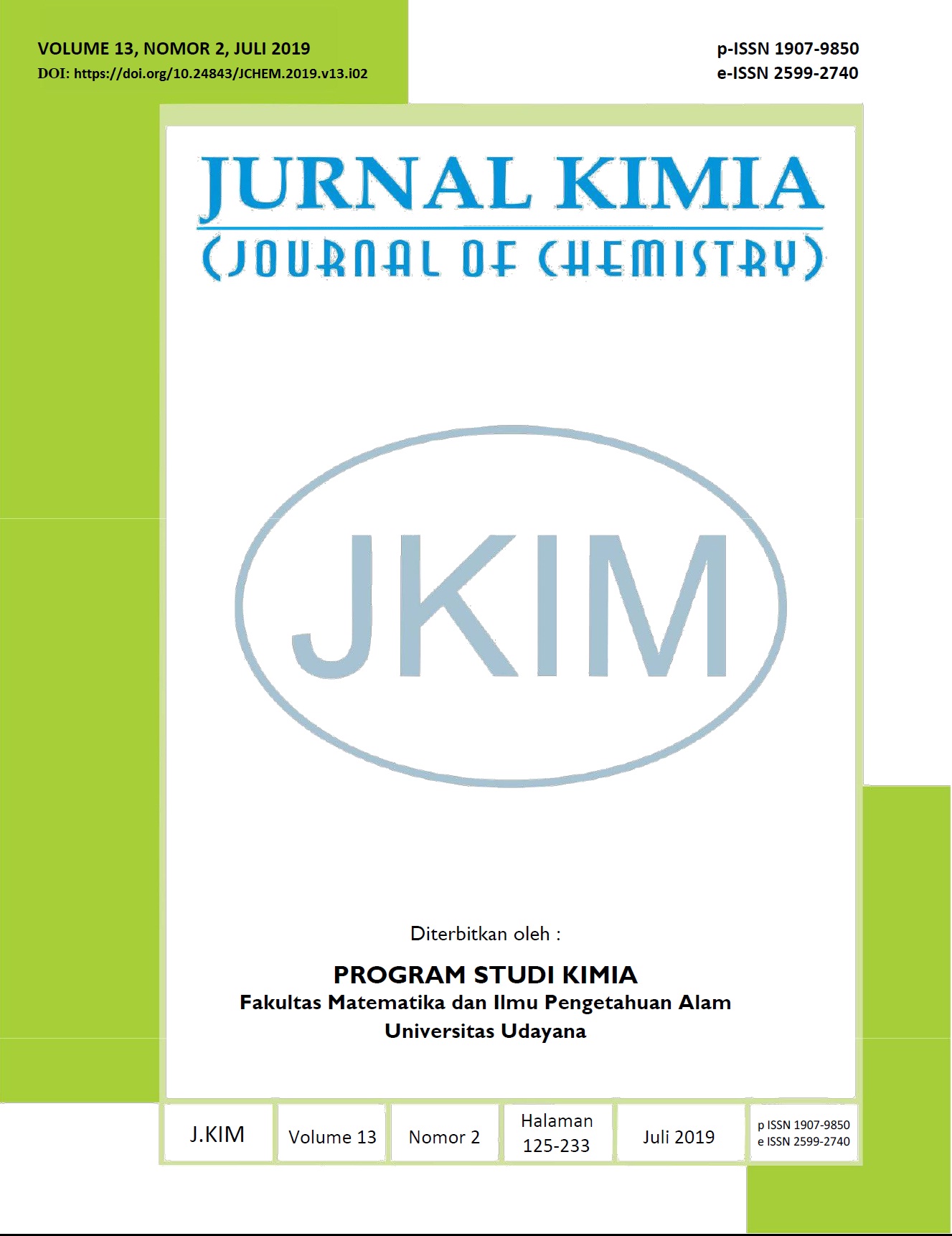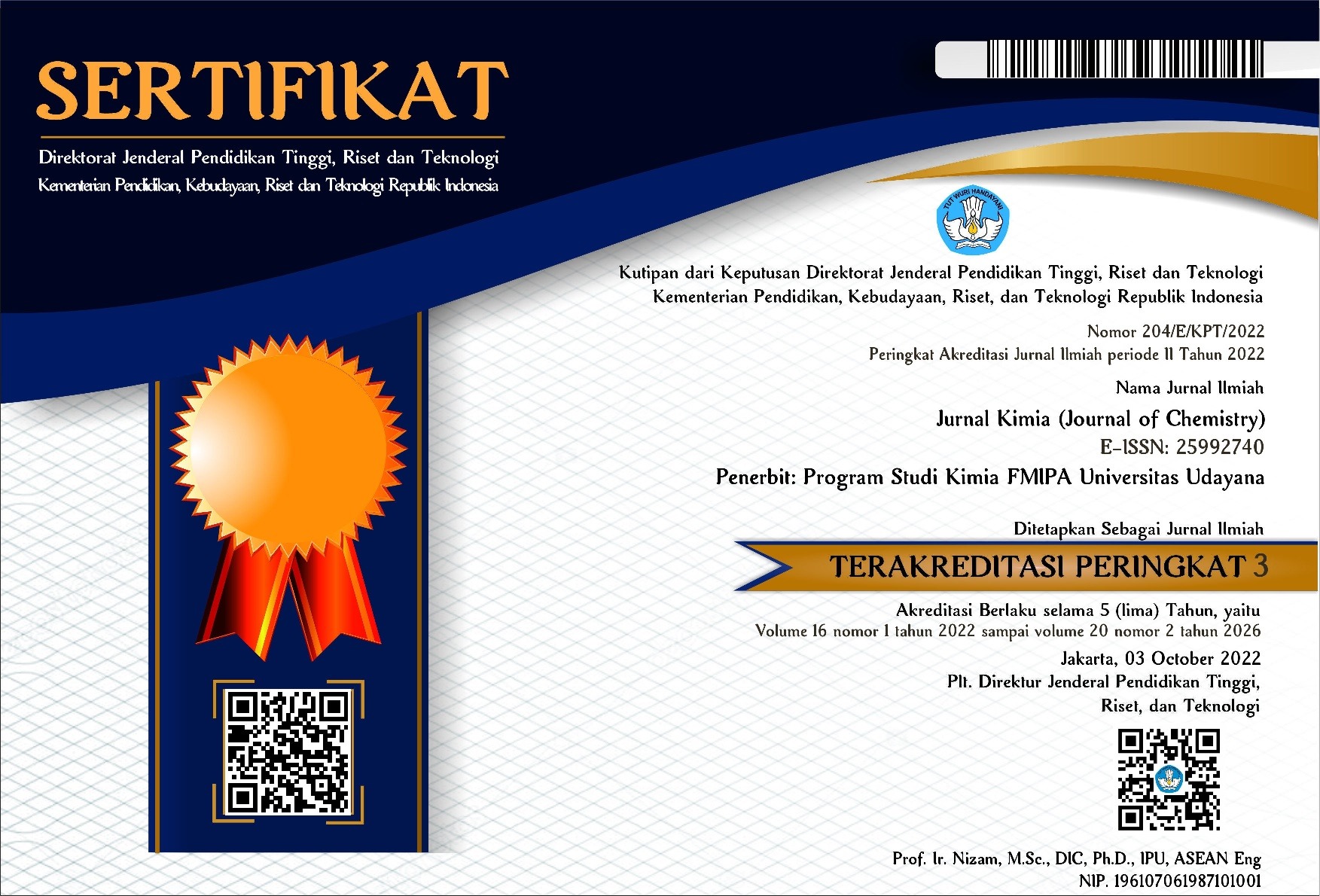AKTIVITAS ANTI-RHEUMATOID ARTHRITIS DARI BRAZILIN DAN BRAZILEIN SECARA IN SILICO
Abstract
Rheumatoid arthritis is an autoimmune disease that occur by inflammation chronic which persist as a permanent symptom. That inflammatory process caused joint destruction. Production of pro-inflammatory sytokin such as Tumor Necrosis Factor Alpha (TNF-?) stimulate an autoimmunity. Active TNF-? plays a role in the occurrence of chronic inflammation, in which the formation of active TNF-? is regulated by TNF-? Converting Enzyme (TACE). Brazilin and brazilein are known to have anti-inflammatory activity and immunommodulator potentially as anti-rheumatoid arthritis. The purpose of this study were to determine the affinity and mechanisms of brazilin and brazilein against TACE proteins as anti-rheumatoid arthritis perfomed using molecular docking method. The study was conducted exploratively with several steps such as databases preparation of 3D structures brazilin, brazilein, TACE protein, optimization of brazilin and brazilein 3D structures, protein preparation, molecular docking method validation, and docking brazilin and brazilein in these proteins. The docking results are assessed from the binding energy and hydrogen bonds formed between brazilin and brazilein in proteins. The smaller value to the binding energy, will made the bond between brazilin and brazilein with proteins will be stronger and more stable. The results showed that brazilin and brazilein have activities as anti-rheumatoid arthritis because they are able to inhibit TACE proteins with respective bond energy values -7,24 for brazilin and – 7,59 kcal/mol for brazilein. These results show that brazilin and brazilein have the potential to inhibit inflammatory process and joint destruction in rheumatoid arthritis.
Keywords : brazilin, brazilein, in silico, rheumatoid arthritis
Downloads

This work is licensed under a Creative Commons Attribution 4.0 International License






